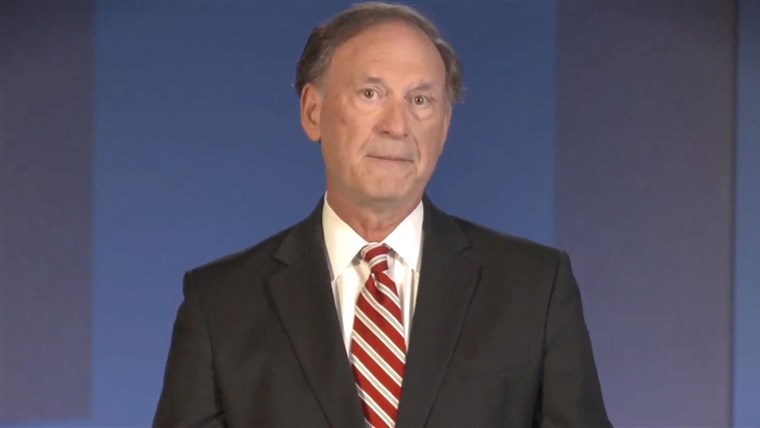Roberts Court: The Establishment Clause is unconstitutional

The Roberts Court appears poised to extend its theory that states not wanting to be entangled with religious education is unconstitutional:
During oral arguments, Maine chief deputy Attorney General Christopher Taub raised several justifications for the state’s refusal to underwrite religious education. Most of them began from the presumption that the government has a compelling reason to build a wall between religion and state-sponsored education. Taub had good reason for this presumption: It’s called the Establishment Clause of the First Amendment. In a long line of cases, the Supreme Court has prohibited states from using their “public school system to aid any or all religious faiths or sects in the dissemination of their doctrines and ideals.” The court has routinely explained that this bar does not “manifest a governmental hostility to religion or religious teachings,” but simply enforces the First Amendment’s guarantee against any law “respecting an establishment of religion.” Moreover, the court has held that states may erect a wall between church and state that goes higher than the Establishment Clause requires, acknowledging “antiestablishment interests” in preventing entanglement of religion and government.
For most of the 20th century, the Supreme Court mandated religious neutrality in public education. Now a majority of justices think this neutrality is “odious” discrimination. How did it come to this? Justice Amy Coney Barrett provided a clue when she told Taub that “all schools” have “some belief system”; even public schools must decide “the kind of values they want to inculcate in the students.” To Barrett and her conservative colleagues, religion is just one of many competing “values” that schools might teach. Taub identified some of these values—“public service, be kind to others, be generous”—as the foundation for a civic-minded education in a pluralistic democracy. The conservative justices were more skeptical: They think that, by selecting these (secular) values as the bedrock of public education, Maine disfavors institutions that would rather instill overtly religious values.
Our current Supreme Court sees things differently. In question after question, the justices appointed by Republican presidents suggested that neutrality toward religion actually constitutes hostility toward religion. Justice Brett Kavanaugh told Taub that declining to subsidize religious schools was just as “odious to our Constitution” as funding Protestant schools while excluding Catholic and Jewish ones. “The exclusion of religious people and religious institutions from public benefits solely because they’re religious,” Kavanaugh declared, “is itself discriminatory.” Justice Clarence Thomas implied that secular education is just a pretext for anti-religious animus, mocking Taub’s claim that there are legitimate benefits of non-sectarian schooling. (Thomas imagined a student at a secular school proclaiming: “Oh, I’m so glad I’m here because you don’t have a lot of Catholicism here.”)
Justice Sam Alito drew upon this argument when he asked if a private school could receive money if it “inculcates a purely materialistic view of life.” Taub hedged, explaining that “there are other aspects of what a school could do that would be inconsistent with public education,” like teaching “Marxism or Leninism” or “white supremacy.” If such a school applied for funding, Taub said, “a way would be found to ensure that that school is not allowed to participate.” Alito responded: “Would you say the same thing about a school that teaches critical race theory?” (Taub: “I don’t really know exactly what it means to teach critical race theory.”) Barrett, too, did not seem to believe that Maine would truly pull funding from private schools that teach offensive ideas. She accused the state of failing to engage in real “oversight,” discriminating against sectarian schools while giving secular schools “a thumbs-up” to teach dangerous ideas.
Alito invoking CRITICAL RACE THEORY here is perfect. It’s also very telling — as I’ve said before, Alito’s brand was to mask a more-reactionary-than-Scalia ideology with bland technical language that hacks took as evidence of substantive moderation. But since Kennedy retired he’s just openly taking up Scalia’s mantle by just repeating whatever bullshit he just saw on Fox & Friends during oral arguments. It’s a symbol of a majority that feels no longer feels the need to show even strategic restraint, up to and including that pretending that the very first clause of the First Amendment doesn’t exist.


